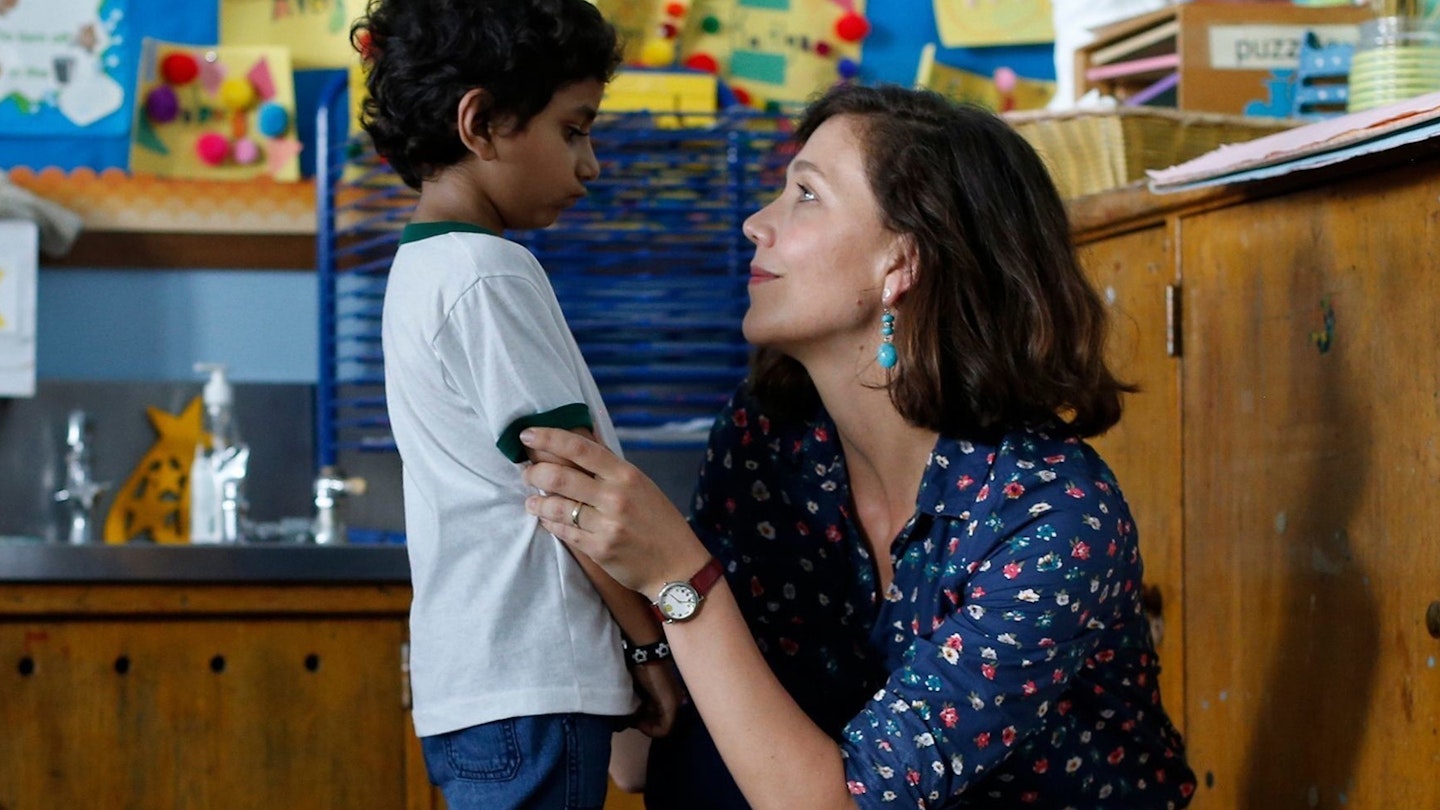There is no such thing as a bad Maggie Gyllenhaal performance. From early indie calling cards like Secretary and Sherrybaby through the Oscar-nominated Crazy Heart to stunning forays into TV like The Honourable Woman and The Deuce she is one of the most exciting actors working today, doing subtle work in projects too diverse to pigeonhole (lest we forget she’s in The Dark Knight). She is also the reason to see The Kindergarten Teacher, Sara Colangelo’s remake of Nadav Lapid’s 2014 Israeli film, giving a captivating, unshowy performance that pulls you deep inside a complex character and doesn’t let you out.
Colangelo sets up the lead character in quick deft strokes. Gyllenhaal is Lisa Spinelli, an experienced Staten Island kindergarten teacher — we meet her sitting on a primary school chair way too big for her — living an unfulfilled life. Her marriage is nice but unexciting, her kids worryingly conventional. She takes a poetry class run by a passionate professor (Gael Garcia Bernal) but not even he can conjure up enthusiasm for her dull ditties about flowers in concrete. Hanging around after school, she hears one of her charges, 5-year old Jimmy Roy (Sevak), recite preternaturally beautiful poetry seemingly of the top off his head. Transfixed she starts to take an interest in the kid, encouraging her carer (Alita: Battle Angel’s Rosa Salazar) to write down the pearls of wisdom and taking an interest in the boy that increasingly crosses the line for a primary school teacher. And of course, she starts passing off his work as her own to the delight of her poetry class and tutor.
A showcase for Gyllenhaal’s brilliance.
A Gyllenhaal character is often at her best when she is making bold life choices without necessarily having the self awareness to know why she is making them. A genius at suggesting inner lives in turmoil, she perfectly etches Lisa’s growing sense of protectiveness over Jimmy Roy’s talent, drawing us in but never tipping a nod to her character’s real motivations. Is she interested in preserving an artistic soul, or transcending the mundanity of her family life, or something darker? She is ably supported by Sevak, who spins disinterest and precocious insight on a dime, without ever feeling cloying or cute.
It moves so leisurely it might have to make way for a snail, and some may baulk at its lack of a firm take on its lead. But Colangelo infuses the story with a black comedy and a growing sense of foreboding, aided by composer Asher Goldschmidt's simple but unnerving score for strings and piano. But Colangelo’s wise choice is not to get in the way of her star. At one point towards the end, Gyllenhaal gives a speech behind a bathroom door that is a masterclass in nailing different emotional colours all at once. You could easily imagine it being a scene shown come Oscar night.
